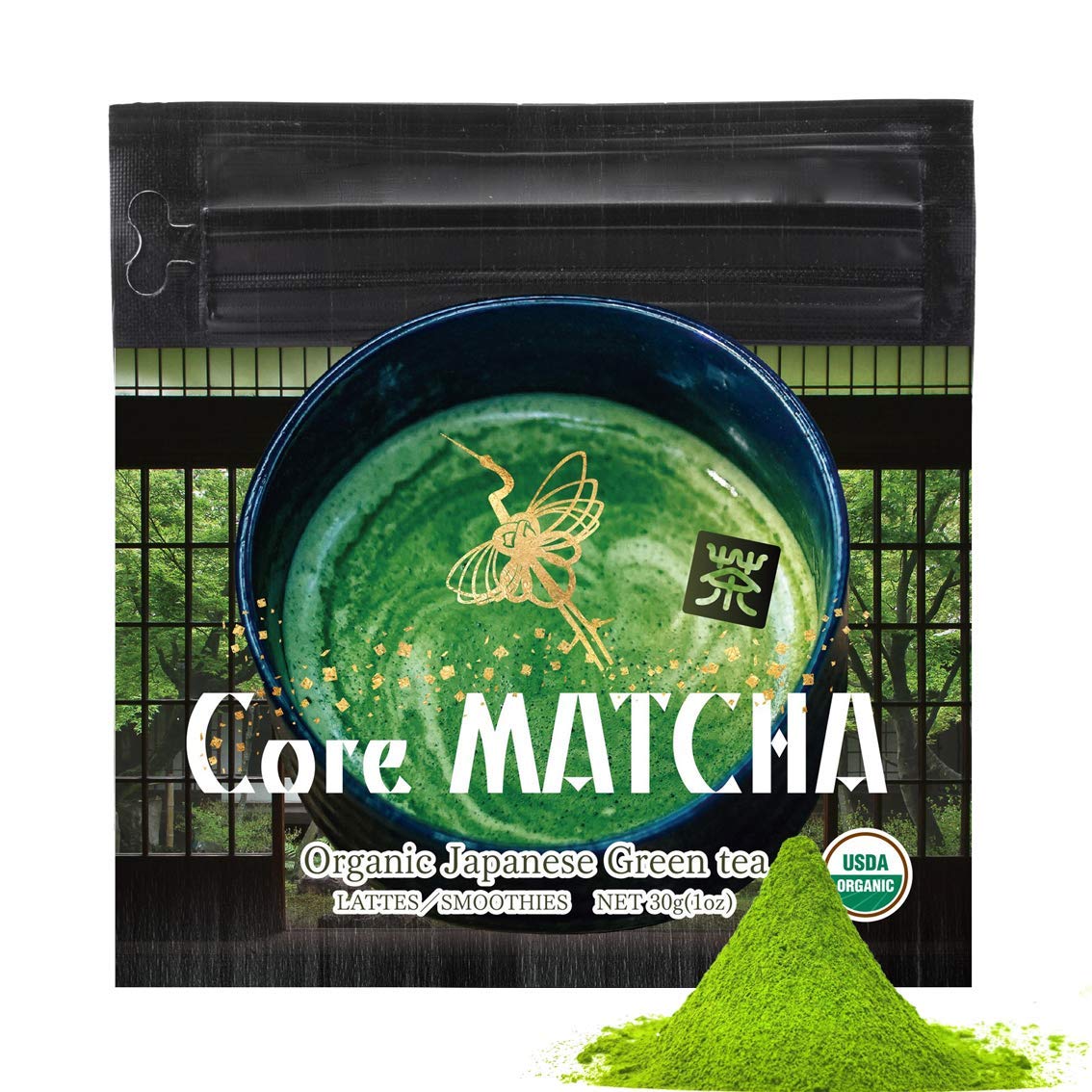These days, matcha is popular in the US because it is said that matcha is good for your health. And you may wonder that you can drink many cups of match a day…? Or not? Also, if you get pregnant, you may not sure if you can take matcha because it contains caffeine.

Therefore, in this article, we will answer to the questions such as “How much matcha can I drink per day?” and “Can you drink it if you’re pregnant?”

- How much matcha can you drink per day?
First, let’s think about caffeine in matcha.
The Ministry of Health, Labor and Welfare in Japan recommends that the daily caffeine intake should be below 300 to 400 mg (1 g = 1000 mg) for adults. And, matcha contains about 32 mg of caffeine per gram. One teaspoon of matcha weighs about 1.5 g. Therefore, the caffeine content is about 48 mg, And, it is said that if you take 250 mg or more of caffeine in a day, you can expect the awakening effect.
【250 ÷ 48 = 5.2】If you want to take 250 mg of caffeine from matcha to expect the awaking effect, you should drink matcha with about 5 teaspoons a day. However, you may take caffeine not only from matcha but also from coffee, tea, energy drink and other drinks. Therefore, 2 – 3 teaspoons of matcha is better not to exceed the limit of the day.
- Caffeine in matcha caffeine is the same as coffee
If you use matcha with hot water, look at the amount of matcha used for one cup of matcha.
| Richness | Amount of matcha | Among of hot water |
| Light matcha | 2g(1 teaspoon) | 60ml |
| Dark matcha | 4g(2 teaspoons) | 30ml |
Calculating with the amount of caffeine, the amount of caffeine you take when drinking one cup of matcha is as follows.
| Richness | Amount of caffeine | Ratio |
| Light matcha | 64mg | Matcha 2g, hot water 60ml |
| Dark matcha | 128mg | Matcha 4g, hot water 30ml |
In general, matcha served at restaurants is light tea. Therefore, if you drink one cup of matcha, you take 64 mg of caffeine.
Comparing with coffee, one cup of coffee (150 ml dripped with 10 g of coffee beans) contains 60 mg of caffeine. Therefore, the caffeine in one cup of matcha (light matcha) is almost the same as one in a cup of coffee

- Can you drink matcha if you’re pregnant?
The Ministry of Health, Labor and Welfare in Japan and overseas recommend that caffeine intake during pregnancy is up to 200-300 mg a day. This is because it takes more time for pregnant women to decrease caffeine in the blood than usual. Therefore, it’s considered that the effects on the body are likely to be stronger than usual.
Studies say that excessive intake of caffeine during pregnancy may be associated with fetal growth inhibition, low birth weight, premature birth or stillbirth. Therefore, if you are pregnant, you need to be aware of taking caffeine.
However, it is believed that there is no major concern as long as you don’t take a lot of caffeine which doesn’t exceed the above range. In the case of matcha, you may drink 4 – 6 cups of matcha a day with a small cup (70 ml).
Please note that the amount of caffeine varies depending on the amount of tea leaves used and the method of dripping, and the sensitivity to caffeine varies depending on individuals.
In particular, since the content of caffeine in matcha is higher than other caffeine drinks, it is better to know how much matcha you take or take a smaller amount than the upper limit as a guide.
- Is there non-caffeine matcha in the market?
These days, there are various kinds of decaffeinated green tea or decaffeinated coffee. And some people prefer to drink decaffeinated drinks considering their health. Regarding decaffeinated matcha, there is a low-caffeine version of matcha. However, you may not be able to find decaffeinated matcha in the market.
Also, you may have seen that matcha products that say non-caffeinated matcha or caffeine zero matcha flavor, selling on Amazon. However, when you check the raw materials or ingredients in the product, matcha is not actually contained. And it’s just like green juice, using similar products such as mulberry leaf or spinach.
If you are not sure that the products that say non-caffeinated matcha or caffeine zero matcha flavor contain matcha or not, you should check the label of the raw materials or ingredients.
- When is the best timing to drink matcha!
Among the components of matcha, caffeine and theanine are the most outstanding. It’s recommended that you should wake up with caffeine of matcha and start the day with a relaxed mind with theanine.
Of course, you may drink matcha if you want to take a break during the afternoon teatime or if you want to refresh your mind after your work. However, if you take too much caffeine in the afternoon, you may not be able to sleep at night. Therefore, the best timing to drink matcha is the morning. You feel fresh and can start good day with matcha!
Conclusion
The amount of caffeine in matcha is one of the stronger categories than other caffeine drinks. When it comes to caffeine, you may imagine coffee. However, the caffeine in matcha is slightly more than the one in coffee.
If you want to drink matcha, morning is the best time for that. And if you are pregnant, it’s better not to take caffeine to avoid any risks during pregnancy. Or be aware of how much matcha / caffeine you drink not to exceed the standard upper limit. Keep this in your mind and enjoy drinking matcha!
